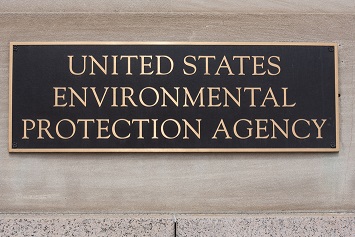News media have reported that President Trump will issue a new executive order to further limit some as yet unnamed additional aspect of the Environmental Protection Agency’s (EPA) powers. The president has already frozen the effective dates of dozens of EPA rules and also silenced most of the social networking of EPA staff.
 |
The Republican majorities in Congress have jumped on the bandwagon by using the Congressional Review Act to pass resolutions that would nullify several major federal environmental rules. And the attacks go much further. The most stunning example is a bill introduced by Florida congressman Matt Gaetz (R) to eliminate the EPA completely. Gaetz bill states in its entirety – “The Environmental Protection Agency shall terminate on December 31, 2018.” The bill has received little support.
Science, Not Politics
Other lawmakers believe there is still hope for a better EPA. That sentiment was expressed in the title of a recent hearing of the House Committee on Science, Space and Technology – Making EPA Great Again.
“Over the last eight years, the EPA has pursued a political agenda, not a scientific one,” said Committee Chair Lamar Smith (R-TX). “Time and again, we saw the EPA under the Obama administration propose regulations that would have no significant impact on the environment.”
But Smith added that the EPA can once again become an agency that is credible and respected.
“Simple changes, such as eliminating conflicts of interests, adding more balanced perspectives and being more transparent can go a long way to restoring the agency’s credibility,” said Smith.
Transparency
Hearing witnesses did discuss the need for better transparency, along with other science-oriented topics, including stronger peer reviews.
“How can EPA be sure that it is relying upon the best available science when the scientific and technical information used to support its actions cannot be identified and made available to the public?” asked Jeffrey Holmstead, an environmental attorney with the law firm Bracewell LLP.
The EPA has offered several defenses for not publicizing certain data used in rulemaking. For example, if the Agency was required to make public all data, certain information declared confidential by its owners could not be used even if it is high quality and germane to the regulatory action. The Agency has also argued that scientific findings applying to individuals should not be made public if the individuals want to protect their privacy.
According to Holmstead, the only legitimate reservation concerns the possible violation of personal privacy, an issue that can be easily remedied.
“Certainly, no one believes that it is appropriate for anyone – much less a federal agency – to publicly release such information,” testified Holmstead. “But I cannot imagine a case in which personal information about any particular individual or individuals would be needed to support the types of regulatory actions and policy decisions made by EPA. I do understand that documentation used in some studies does contain personal information about some individuals. But names or other identifying information could certainly be redacted before any such information is made public. Admittedly, EPA would incur costs to review certain data and ensure than personal information is redacted before it is made public. But when regulations impose billions of dollars on consumers and businesses, it is surely appropriate for the government to spend a tiny fraction of this amount to ensure that the scientific information used to support those regulations can be made public.”
Objective Peer Reviews and Reviewers
Regarding peer reviews of scientific information used support rules, Kimberly W. White, Senior Director of the Chemical Products and Technology Division at the American Chemistry Council, says the EPA’s processes and approaches are inconsistently applied throughout the Agency, including the selection of peer review members of the various panels (e.g., Science Advisory Board [SAB] and FIFRA Science Advisory Panel) and consideration given to public and peer review comments.
“During some EPA peer review meetings, the peer reviewers have appeared to be overly deferential to EPA and reluctant to be seen as criticizing EPA staff,” testified White. “We have also seen situations where peer reviewers have suggested discounting a study solely based on the funding source, without any considerations being given to the quality of the study.”
According to White, Agency peer review groups are also not currently subject to a robust policy for consideration of public comments in the peer review process. “In fact we have seen SAB chairs ignore public input because they are not required to address it,” she said.
“Peer review should be independent and objective, allowing for robust engagement with stakeholders to provide a thorough review,” White added. “It should also include a quality assurance process that explicitly evaluates whether the peer review recommendations and public comments were completely and adequately addressed.”
Testimony from the hearing is at https://science.house.gov/legislation/hearings/full-committee-hearing-making-epa-great-again
